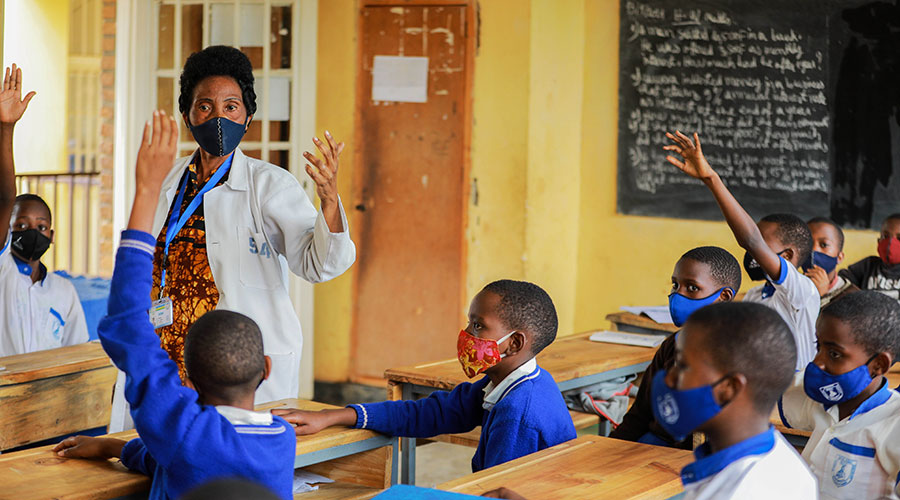

After all, it’s all natural. The fact that all the Rwandan natives share the same language, is a great richness. They found themselves so.
However, as much as it carries with it a rich heritage, it tends to pose a heavy challenge to whoever would tempt to adopt any foreign language as a means of communication; especially verbal.
I am talking about schools.
In the current curriculum, all examinable subjects, apart from languages such as Swahili, Kinyarwanda and French, are taught and evaluated in the English language. It is therefore inevitable to obtain a command of English as a vehicle for quality performance.
A student / learner could be well versed with concepts, say in Physics, Chemistry or even in more wordy subjects such as History. But when they are lacking in the language to express the same, the whole difference emerges. In fact, language here tends to carry the equal weight of relevance as content itself.
Hard stuff demonstrated in meticulously organised grammar will be more appealing to the examiner than less tough content thrown around in poor English.
Masterly of English as a language in schools therefore cannot be overemphasised, for, even after school, graduates will need it in interviews; both locally and internationally. In fact, it happens to be the most widely spoken language in the world.
Unfortunately, even with all these glaring facts, to have students learn and speak in English in our local schools is still a mirage. Who is to blame?
Might the teachers have failed us? Maybe. But just before we shout at them, let’s give them a fair hearing. They too, have become teachers because they were taught. And, their teachers, in majority of the cases, were not very sure of the art they were passing on. After all, they would be excellently comfortable to do it in French. English is still somehow alien to them (teachers). They need to work extra hard. This means that pointing fingers at them at this point would be simply being unfair.
Would the students themselves justly shoulder the blame? The answer is more of a no than a yes. Naturally, a human being will not struggle to acquire something while there exists an effortless means of obtaining the same. Who chooses to be ferried on a donkey cart while a limousine is readily available? The fact that all, from a babbling child to the highest man in the mighty offices speak in mother tongue, both mind and the speech apparatus will comfortably be set for use of the same. They (students), will therefore do the same, they catch themselves communicating in vernacular even during English lessons.
In countries where the population is segmented in tribes, adopting a foreign language for communication is almost natural. It is understandable that one of the tribe’s dialects cannot be picked for communication across the tribes, lest it creates a feeling that the chosen one is being treated as superior to the others. This would create some social political unacceptability. To avert this therefore, multi-tribed counties will pick a foreign/ neutral language to serve that purpose.
To deal with a deeply rooted tendency therefore, an equally "deep rooted” policy is required. Various schools, if not all, have tried to get students communicate in English in vain. The policies used have proved futile; in most of the cases, some opt to dress the vernacular speakers in ugly sacks so that they may feel bad to look like a scarecrow, others deduct them marks while others use debate as a platform where students can acquire vocabulary and apply the same in their casual talks. These, among the many strategies used, have not been satisfactorily successful. It is not uncommon to interact with a senior Six student who, after going through the six years of school, will not comfortably narrate their autobiography; leave alone making a sound argument in English.
Where do we go from here?
Author is the Headmistress, Inyange Girls’ School Of Sciences.


